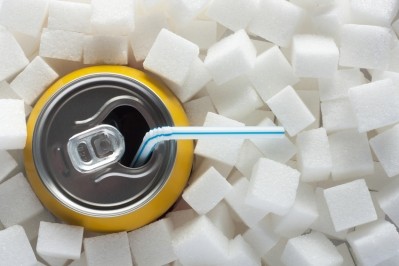‘Health halo’ conceals high salt levels in meat alternatives: Action on Salt

A nationwide product survey of 157 meat-free products conducted by the UK pressure group suggested that the “health halo” of alternative protein products is being used to conceal high levels of salt. It found 28% of all meat-free products included in the study are higher in salt than maximum targets set by Public Health England.
Category | PHE 2017 Maximum Salt Target | PHE 2017 Average Salt Target |
Plain Meat Alternatives (including plain mince, pieces, fillets) | 0.63g of salt per 100g | N/A |
Meat Free Products (all meat alternative products including sausages, burgers, bites, pies, sliced meats) | 1.25g of salt per 100g | 0.9g of salt per 100g |
Meat Free Bacon | 1.88g of salt per 100g | N/A |
These government’s voluntary targets were due to be met at the end of December 2017 and Action on Salt suggested that PHE’s approach has been ineffective due to “little monitoring” and “many” companies who have chosen to abstain.
“Reducing salt is the most cost-effective measure to reduce the number of people dying or suffering from entirely unnecessary strokes and heart disease. Given the vast amounts of strokes and heart disease that could be avoided and huge savings to the NHS, it is incomprehensible that Public Health England are not doing more to reduce the amount of salt in our food. We are again calling on PHE to take urgent action,” Graham MacGregor, Professor of Cardiovascular Medicine at Queen Mary University of London and Chairman of Action on Salt, said.
Responding, PHE insisted progress has been made on reformulation – but conceded more work is required.
Every 1g reduction in salt intake prevents 7,000 deaths, 4,000 of which are premature, from strokes and heart disease and NICE (National Institute for Health and Care Excellence) has shown that each gram reduction saves the NHS £1.5 billion.
Professor Louis Levy, head of nutrition science at PHE, said: “Our salt consumption has decreased over the last decade but there is still a long way to go, as some foods still contain too much salt.
“Government has been clear with the food industry on the importance of meeting the 2017 salt targets. Since taking over salt reduction, PHE has been collecting data on industry’s progress and we’ll report later this year as planned.”
But Action on Salt stressed that PHE assumed responsibility for the salt reduction plan two years ago and insisted that since then there has been “little action”, no progress report, and no announcement on salt reduction plans for 2018 and beyond.
The worst offenders
The saltiest products in the survey - Tofurky’s Deli Slices Hickory Smoked and Tesco’s Meat Free 8 Bacon Style Rashers – both contain more salt per 100g than seawater: 3.5g/100g and 3.2g/100g respectively.
Of the meat alternative products surveyed – including burgers and sausages - the highest average salt content per 100g was found in meat free bacon at 2.03g of salt per 100g. Meat free sliced meat contained 1.56g of salt per 100g.
Per portion, on average vegetarian kievs were the saltiest at 1.03g – saltier than a large portion of McDonald’s fries - followed by meat free sausages (0.96g) and, surprisingly, plain meat-free pieces and fillets (0.87g).
'Saltier than meaty options'
Action on Salt revealed that beef burgers from retailers including Tesco, Sainsbury’s and Asta contain an average salt content of 0.75g per 100 g serving. This, the pressure group stressed, is lower than the average salt content of meat alternatives, which stands at 0.89g per serving.
Action on Salt singled out Quorn’s Best of British Sausages as the saltiest vegetarian sausage, containing “as much salt as the saltiest meat sausage” at 2.2g per two sausages.
A spokesperson for Quorn stressed that it provides a range of products that cater to different tastes.
“Quorn produces a range of sausages, with its bestselling Quorn Sausages being low in salt and highlighted on the front of pack. The salt content is 1.2g per 100g for 336g of Quorn frozen sausages and 1.1g per 100g for 250g Quorn chilled sausages, making both options a healthy source of protein.
“Quorn’s Best of British Sausages offer slightly more indulgent sausages. Whilst they are higher in salt, as clearly marked on pack, they are still low in saturated fat. We review all our product recipes on an ongoing basis to ensure we are achieving what our consumers want in terms of taste and health credentials.”
Action on Salt also noted the varying levels of salt contained in different meat-free products. However, the health campaigners claimed that this highlights that it is “very easy to make products with less salt and so all manufacturers should aim to reduce salt in their products, not just the responsible few”.
Mhairi Brown, nutritionist at Action on Salt, concluded: “Research has highlighted that we must reduce the amount of meat we eat to reduce the negative impact of climate change. The food industry have ensured greater availability of meat-free alternatives, but now they must do more to ensure that meat free alternatives contain far less salt - at the very least lower than their meat equivalents. This survey drives home the urgent need for Public Health England to reinvigorate the UK’s salt reduction strategy.”



















